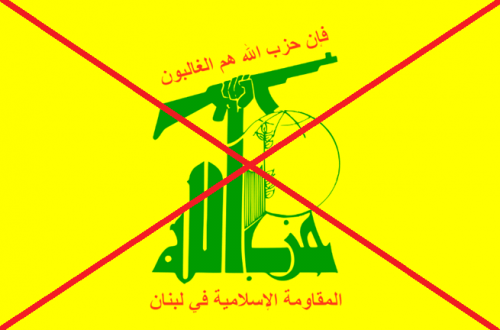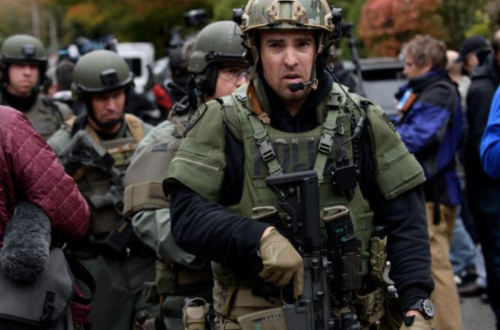This is a cross-post from Just Journalism.
The latest batch of US embassy cables leaked by the whistle-blower website WikiLeaks have uncovered further evidence of the extremist views of the prominent Sunni cleric Yousuf al-Qaradawi. Coverage of Qaradawi tends to omit his extremist views, emphasising instead the respect with which he is held in the Muslim world. Examples of this include The Guardian’s reporting of his fatwah against Colonel Gaddafi, which portrayed him as a pro-democracy moderate, and the BBC’s coverage of his appearance at a rally in Egypt, which simply described him as ‘influential’.
The leaked embassy cables appear to reveal Qaradawi’s support for Hamas, suicide bombings against Israel and the stoning to death of those found guilty of ‘collaboration’ with the Jewish state. They also reveal his contempt for inter-faith dialogue.
One of the cables gives details of a sermon in which Qaradawi allegedly calls for the Palestinian President, Mahmoud Abbas, to be tried for ‘collaboration’ with Israel. Qaradawi condemns Abbas for not actively supporting the Goldstone report, which accused Israel of commiting war crimes during Operation Cast Lead. The cable cites the ‘eyewitness account’ of a Palestinian ambassador:
‘Qaradawi went on to call for an investigation and a trial into the Palestinian President’s actions. “If found guilty”, he said, not only should Abbas be executed, but he should be stoned in Mecca.’
The Palestinian Ambassador was critical of the media for failing to mention Qaradawi only endorsed the death penalty if Abbas was indeed found guilty:
‘The Palestinian Ambassador said that the media, by downplaying the fact that Qaradawi’s call for Abbas’s death had been conditioned on a finding of guilt, had inflamed Islamic extremists. “Islamists now hate Abu Maazen and the Palestinian Authority for collaborating with crusaders and Jews,” he said.’
Another cable cites a second example of Qaradawi strengthening Palestinian extremists who oppose the moderate policies of the Palestinian Authority. In a discussion between the Amir of Qatar and Abbas, the issue of Hamas’ stance on negotiations with Israel was raised. While the Amir promised to exert pressure on Hamas, Abbas stated that Hamas’ ideology fundamentally prevented it from accepting peace with Israel – a stance bolstered by Qaradawi:
‘According to Ambassador Ghannam, Abbas has been telling countries supportive of Hamas (such as Qatar, Sudan, and Syria) that Hamas cannot accept a political peace process in the Middle East because to do so would require engaging Israel. Religious authorities, who generally are not Palestinian, sway Hamas’ thinking, noted the Ambassador. These clerics do not necessarily care for the Palestinian national agenda — much less the concept of a modern nation-state. Muslims, they believe, should be united as one community. The black and white interpretations of these Islamic leaders come from God, and Abbas told the Amir (as he has told other Arab leaders) that accepting these dictates is not practical. Ghannam added that Shaykh Qaradawi of Qatar is an example of a religious figure whose words the Hamas leadership, especially Mishaal, heeds.’
Qaradawi also supports the use of suicide bombers, a weapon frequently used by Islamist extremists. A cable reveals the details of a meeting between American diplomats and the cleric:
‘Qaradawi took hold of the opportunity to make clear that “I support the martyrdom operations.” These were justified as the only way to respond to the “rape” of the Palestinian people and the destruction of their homes. He called these suicides the “dearest type” of weapon, because it is the only weapon available. “How can I align myself with Zionists when the Palestinian people are being destroyed in this manner?” he asked, reinforcing the steadfastness of his position on suicide bombing.’
He continues to explain that he refuses to ‘engage in dialogue’ with any Jewish person who is either Israeli or ‘who support[s] Zionism’, suggesting that it is Israel’s existence as a Jewish state, rather than any specific policies by its government, that is the cause of his ire:
‘Qaradawi called the Israeli issue the number one problem in the region. He said he will not engage in dialogue with Jews who are Israeli or who support Zionism. He will not participate in the upcoming Dialogue of Religions in Doha at the end of June, to which Jews have been invited for the first time. He said he accepts dialogue with Jews who do not support Israel, and he mentioned a meeting he had in London in that regard.’
Another cable confirms that Qaradawi did in fact decline to participate in the interfaith conference, citing both the presence of Jews and Christians:
‘According to the Arabic-language daily Al-Raya, Qaradawi said that he did not attend because Jewish rabbis were in attendance, and that he would continue to boycott any meeting attended by Jews as long as “they keep usurping Palestine and Al-Aqsa Mosque and shedding the blood of innocent people.”
‘Qaradawi then turned his attention to dialogue with the Christian community, saying that “holding meetings with Christians is a waste of time, since they do not recognize Muslims and say that Mohammed (peace and blessings of God be upon him) is dishonest and that he created the Qu’ran and attributed it to himself. This comes at a time when Muslims recognize Christianity, Jesus Christ, and his book and religion.”‘
This hostility towards Jews was apparent in a sermon he gave on Al Jazeera, as recounted in another cable:
‘In a Friday, January 9, sermon broadcast on Al Jazeera Arabic, Imam Yousef Al-Qaradawi condemned Jews for spreading “corruption in the land,” and for victimizing the Muslim people. He cited the Babylonian Captivity and the Roman conquest as historical examples of God’s punishment of Israel. He said “We wait for the revenge of Allah to descend upon them, and, Allah willing, it will be by our own hands…Oh Allah, count their numbers, and kill them, down to the very last one.”’


